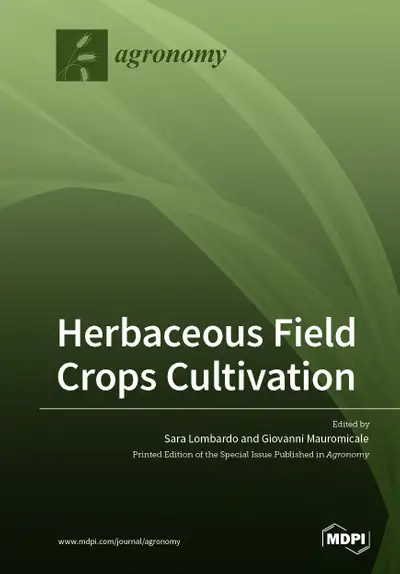Herbaceous Field Crops Cultivation
Giovanni Mauromicale, et al

Herbaceous field crops include several hundred plant species worldly widespread for different end-uses, from food to no-food applications. Among them are included cereals, grain legumes, sugar beet, potato, cotton, tobacco, sunflower, safflower, rape, flax, soybean, alfalfa, clover spp. and other fodder crops, but only 15-20 species play a relevant role for the worldly global economy. Nowadays, to meet the food demand of the ever-increasing world population in a scenario of decreased arable lands, the development of holistic agricultural management approaches to boost contemporaneously yield and quality of herbaceous field crops is essential. Accordingly, this book represents an up-to-date collection of the current understanding of the impact of several agricultural management factors (i.e., genetic selection, planting density and arrangement, fertilization, irrigation, weed control and harvest time) on the yield and qualitative performances of 11 field crops (wheat, cardoon, potato, clary sage, basil, sugarcane, canola, cotton, tomato, lettuce and hemp). On the whole, the topics covered in this book will ensure students and academic readers, such as plant physiologists, environmental scientists, biotechnologists, botanists, soil chemists and agronomists, to get the information about the recent research advances on the eco-sustainable management cultivation of herbaceous field crops, with a particular focus on varietal development, soil nutrient and water management, weed control, etc.
*Available for Download Only
MDPI Book Link (available for purchase)
Publication Details
- Published: 2021
- Publisher: Mdpi AG
- ISBN-10: 3036525351
- ISBN-13: 978-3036525358